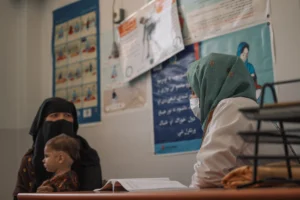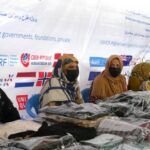UNICEF, the United Nations Children’s Fund, has announced that due to rapid urbanization and climate change, Kabul’s groundwater may be depleted by the year 2030
In a message posted today (Tuesday, November 8) on its X account, the organization stated: “If we act now, we can halt this trend.”
The UN agency emphasized that Rosa Otunbayeva, the UN Secretary-General’s Special Representative in Afghanistan and head of UNAMA, along with Tajuddin Ouyvaleh, the agency’s representative in Afghanistan, visited several areas in Kabul suffering from water shortages.
The purpose of their visit was to find solutions to address the water scarcity in these regions.
It is worth noting that in recent years, residents in various areas have faced severe water shortages.
Ongoing droughts in recent years and excessive drilling of deep wells are believed to be factors contributing to the decline of groundwater in Kabul.
Previously, UNICEF had reported that 8 out of 10 people in Afghanistan drink unsafe water, and 93% of children live in areas that are highly vulnerable regarding water access.
Additionally, OCHA, the UN Office for the Coordination of Humanitarian Affairs, reported that climate change has reduced families’ access to water by 60% in Afghanistan.
Signs of climate change in Afghanistan include declining groundwater levels, flooding, rising temperatures, reduced precipitation, untimely rainfall, and changes in humidity.













